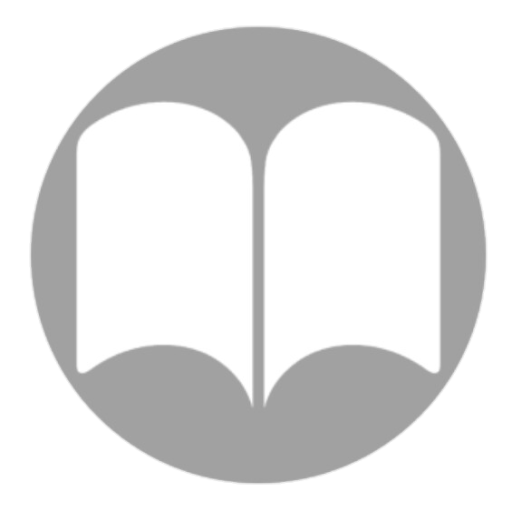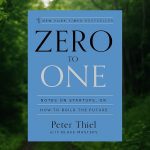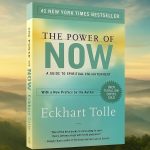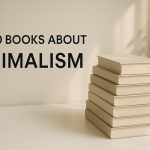Minimalism isn’t about owning less for the sake of scarcity, it’s about clearing away what doesn’t matter so you can focus more on what does. As millions around the world seek less clutter, greater calm, and deeper meaning, the popularity of minimalism has surged. The following Top 10 Books About Minimalism consistently ranking on Amazon and The New York Times bestseller lists, cover the philosophy, practice, and life-changing benefits of living with intention. Some emphasize decluttering, others focus on mindful living, but all promise practical tools for greater clarity, purpose, and joy.
Top 10 Books About Minimalism
1. The Life-Changing Magic of Tidying Up by Marie Kondo

Marie Kondo’s international bestseller transformed the world’s approach to decluttering. Rooted in the Japanese art of “KonMari,” her method isn’t just about tidying-it’s about systematically examining every object in your life, keeping only those that “spark joy.” Kondo guides readers step by step: discard first, then organize what remains. Her focus on visualizing your ideal lifestyle, treating possessions with gratitude, and embracing order as a form of self-care sets her apart from standard cleaning tips. The book’s core premise is radical in its simplicity: when you let go of physical clutter, you also clear mental and emotional space. Readers remain captivated by Kondo’s gentle encouragement to tackle categories (not rooms), fold clothes with care, and approach organization as a celebration, not a chore. Ultimately, The Life-Changing Magic of Tidying Up is less about things and more about transformation-helping readers rediscover what truly matters.
2. Essentialism: The Disciplined Pursuit of Less by Greg McKeown
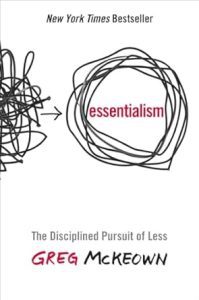
Greg McKeown’s Essentialism challenges the busy, overcommitted mindset that plagues modern lives. Drawing on his experience in leadership and management, McKeown shifts the focus from “how can I get it all done?” to “what is absolutely essential?” The book examines the cultural pressure to say yes, the dangers of distraction, and the freedom found in doing less-but better. Through actionable strategies like establishing boundaries, embracing tradeoffs, and eliminating trivial tasks, readers learn to invest energy in what yields the greatest impact. McKeown presents Essentialism not as a one-time declutter but as a lifestyle-one where clarity is cultivated through conscious, deliberate choices. The narrative weaves together case studies, research, and practical exercises to empower individuals, teams, and leaders. Ultimately, the essentialist path leads not to emptiness, but to a more meaningful, productive, and satisfying life.
3. Digital Minimalism: Choosing a Focused Life in a Noisy World by Cal Newport

In an age saturated with smartphones, social media, and digital distractions, Cal Newport’s Digital Minimalism is both timely and urgent. Newport argues for a philosophy of technology use that’s intentional rather than habitual. The book invites readers to undertake a 30-day “digital declutter,” during which they step back from optional technologies and rebuild their digital lives based on value-not compulsion. Newport explores how constant connectivity undermines well-being, focus, and deeper relationships. Through research on leisure, solitude, and meaningful connection, he illuminates why less is more-especially online. Digital Minimalism offers practical routines for cultivating attention, setting digital boundaries, and rediscovering activities that bring real satisfaction. Newport’s approach is less about renouncing technology, more about regaining control and using tech to support, rather than fragment, the life you want.
4. Goodbye, Things: The New Japanese Minimalism by Fumio Sasaki

Fumio Sasaki’s candid memoir is both a personal journey and a how-to guide for embracing life with less. Once overwhelmed by clutter and discontent, Sasaki pared his possessions down to the essentials and found unexpected freedom and happiness. The book shares his story but also features insights from Japanese minimalism, practical tips for reducing belongings, and reflections on the psychology of attachment. Sasaki covers emotional resistance to letting go, how consumer culture shapes our desires, and the joy of spaces that support-not stifle-living. Rather than prescribing a one-size-fits-all standard, Goodbye, Things encourages readers to define their own “enough.” The tone is refreshingly nonjudgmental, inviting anyone to try minimalism at their own pace. For those curious about the link between simplicity and happiness, Sasaki’s journey is motivational and deeply human.
5. Minimalism: Live a Meaningful Life by Joshua Fields Millburn & Ryan Nicodemus

As the founders of The Minimalists movement, Millburn and Nicodemus have inspired millions to challenge the status quo of consumption and clutter. Minimalism: Live a Meaningful Life is both manifesto and memoir, tracing their transition from corporate strivers to advocates of simplicity. The book is built around five key areas-health, relationships, passions, growth, and contribution-arguing that minimalism isn’t about deprivation but about creating room for what matters. Through personal stories and reflective exercises, the authors explore how to let go of excess, redefine success, and live with greater purpose. Their writing is conversational and honest, demystifying minimalism for beginners and skeptics alike. The result is a practical, motivating read for anyone who suspects there must be more to life than stuff.
6. The More of Less: Finding the Life You Want Under Everything You Own by Joshua Becker

Joshua Becker’s The More of Less positions minimalism as the antidote to modern overwhelm. With a blend of gentle encouragement and practical wisdom, Becker lays out a path for eliminating excess, resisting consumer pressure, and discovering abundance in simplicity. He addresses common hurdles-sentimental items, family resistance, and fear of missing out-while providing step-by-step strategies to declutter every area of life. More importantly, Becker situates minimalism as a vehicle for generosity, community, and personal fulfillment. The book is peppered with stories from people who have radically simplified their homes and lives. Ultimately, Becker argues that minimalism is less about what you own and more about what you make space for-meaningful relationships, creativity, and peace.
7. The Joy of Less: A Minimalist Guide to Declutter, Organize, and Simplify by Francine Jay

Francine Jay’s The Joy of Less offers a clear, friendly, and highly practical approach to conquering clutter. Divided into four parts-philosophy, streamline process, room-by-room strategies, and ongoing habits-Jay’s system makes minimalism attainable, not overwhelming. She champions the idea that having fewer possessions opens up space for more happiness, creativity, and freedom. The book is known for its “STREAMLINE” method, a memorable, actionable guide to evaluating, sorting, and organizing anything. Jay anticipates common pitfalls and provides solutions for parents, busy professionals, and reluctant declutterers. Far from minimalist extremism, her take is realistic and compassionate. The Joy of Less is a handbook for those who want not just a cleaner house, but a calmer mind.
8. Make Space: A Minimalist’s Guide to the Good and the Extraordinary by Regina Wong

Regina Wong’s Make Space offers a warm yet practical approach to adopting minimalism in a world that often demands more more possessions, commitments, and noise. Drawing from her own journey and work as the creator of Minimalist in the City, Wong provides actionable steps for decluttering every area of life: home, schedule, digital devices, and even relationships. The book blends philosophical reflections with down-to-earth checklists, encouraging readers to strip away the unnecessary to reveal a more intentional, fulfilling lifestyle. Wong emphasizes that minimalism is personal it doesn’t require a bare home, but rather a conscious alignment of surroundings with values. She covers overcoming consumer habits, nurturing mindfulness, and finding joy in simplicity. What makes Make Space stand out is its balance of practical guidance and motivational storytelling. Readers are empowered not just to “tidy up” but to reimagine how they live, stripping back to the essentials that truly enrich life.
9. The Minimalist Home: A Room-by-Room Guide to a Decluttered, Refocused Life by Joshua Becker

Becker’s second book on this list zooms in on the home as the foundation for a minimalist life. The Minimalist Home provides a detailed, practical plan for decluttering every space-from bedrooms and kitchens to garages and family rooms-without guilt or overwhelm. Becker focuses on functional minimalism: your home becomes a space for connection, rest, and growth. Stories from families, answers to common obstacles, and customizable checklists distinguish this book from more abstract works. It’s a thorough manual for lasting change, showing that even small efforts can produce outsized benefits in peace and productivity.
10. Slow: Simple Living for a Frantic World by Brooke McAlary

Brooke McAlary’s Slow connects minimalism to living with intention and joy. After burning out from a hectic lifestyle, McAlary shifted her focus to intentional routines, downsizing, and “living slow” in a fast-paced world. Her book isn’t a declutter manual so much as a manifesto for valuing time, mindful habits, and meaningful connection over relentless busyness. Drawing on her experience and those of others who have chosen less, McAlary delivers gentle exercises, reflective prompts, and hard-won insights. Slow is ideal for readers craving not just less stuff, but a richer, more peaceful life.
Engage with Us: What Are Your Favorite Books?
